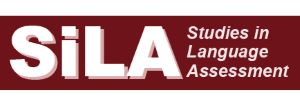Instantiating justice, fairness and inclusiveness in English as an Additional Language/Dialect assessment frameworks: Unpacking the evidence base for the Bandscales State Schools (Queensland)
Catherine Hudson, Australian National University, Denise Angelo, Australian National University & Sue Creagh, The University of Queensland
|
https://doi.org/10.58379/RXAZ8430
|
Volume 12, Issue 2, 2023
|
Abstract: Equity and fairness in schooling is embedded in and represented by assessment practices which are inclusive of diverse cohorts. For students who are speakers of English as an Additional Language or Dialect (EAL/D), fair and equitable EAL/D assessment frameworks must meet a number of key purposes: identification of the full cohort of EAL/D learners, classification of their English language level, acknowledgement and inclusion of students’ bilingual/multilingual capabilities, and enhancement of specialist and mainstream teachers’ pedagogical knowledge of and responses to students’ language needs and language learning contexts. They must also have the capacity to communicate to stakeholders for accountability purposes. Importantly, these assessment tools must be grounded in principles, theory, teacher experience and be evidence informed. This paper will present an overview of the Bandscales State Schools (Queensland (Qld)) for EAL/D learners, the genesis and parentage of the framework, its complementary teacher guidance material and its utilization in research. We will argue that the core goals of equity and fairness are supported by the underlying constructs and design of the Queensland Bandscales, and that it provides a model framework for ‘responsible’ EAL/D assessment that might underlie any possible future national reporting of EAL/D learner needs-based resourcing.
Key words: additional/second language assessment, EAL/D Bandscales, English proficiency frameworks, equity, inclusion
